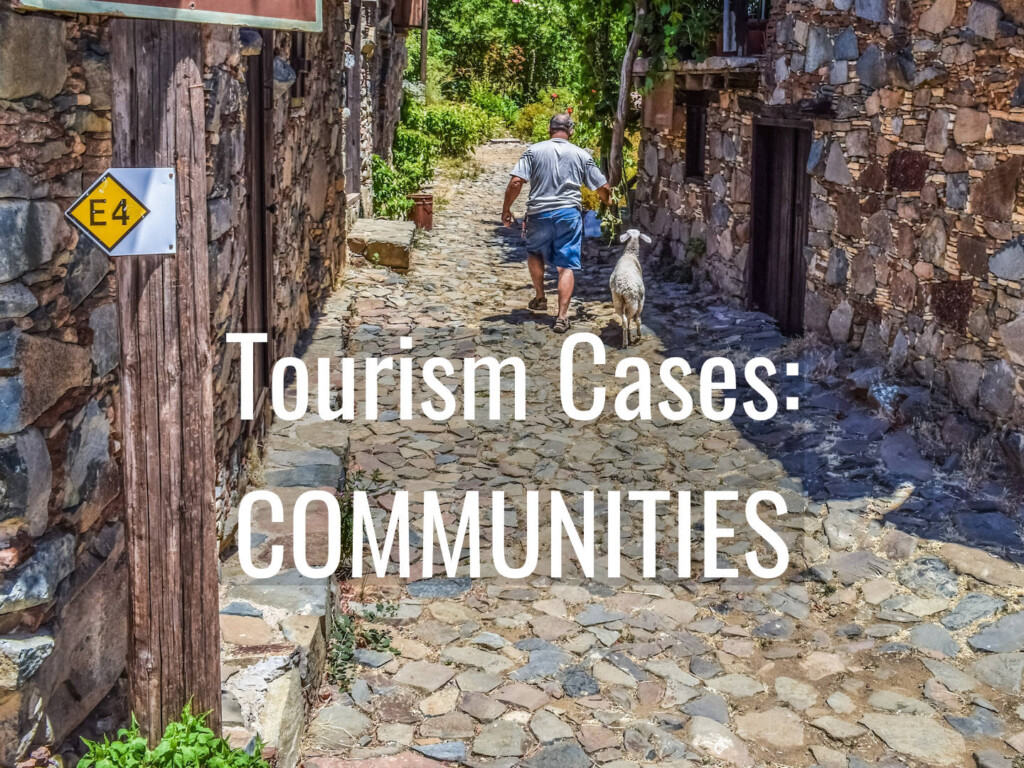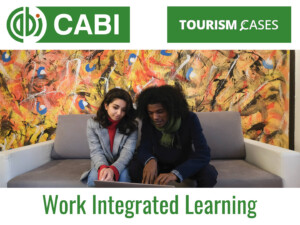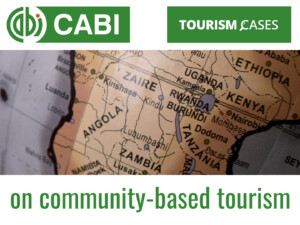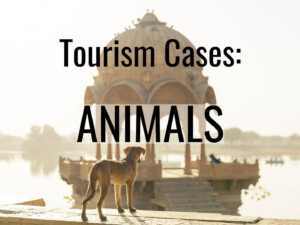CABI Tourism Cases: Tourism and communities

CABI Tourism Cases, a “Good Tourism” Partner, publishes peer-reviewed case studies on travel & tourism’s interactions with the world from just about every angle … including tourism and communities.
This is the second in a new series of posts in which CABI shares brief summaries of its most recent tourism-related case studies (and books) along various themes.
Contents
Recent CABI Tourism Cases on tourism and communities
Mountain Biking Tourism Impacts in Rural Michigan | USA
Mountain biking and mountain biking tourism are on the rise. With this increase comes the potential for increased impacts, especially in rural communities promoting their mountain biking trail systems.
This case presents two such trails in Michigan, USA — The Dragon Trail and the DTE Energy Foundation Trail — to serve as an insight for communities considering developing mountain biking tourism amenities and identities, as well as how the discussion on impacts may vary across contexts.
‘Not All Fun and Games’: The Case of the Victoria 2026 Commonwealth Games | Australia
In April 2022, the Australian state of Victoria was confirmed to be the host of the Commonwealth Games 2026. Victoria’s proposal emphasised the legacy benefits to local communities, particularly through the provision of affordable and social housing and sporting facilities in regional Victoria.
Then, in July 2023, the Premier of Victoria announced the cancellation of the Games, primarily justified by the increase in the initial cost of running the event. This conceptual case study provides an analysis of the factors that influenced the cancellation.
Business Strategy and Development toward Sustainability: A Story of Ban Bo Chet Luk Community Entrepreneurship | Thailand
Community-based entrepreneurship has been acknowledged to be an essential instrument for the socio-economic development of rural communities and social upliftment, especially in developing countries such as Thailand.
This case study covers community background, management history, business strategy, ecotourism, and sustainable development in Ban Bo Chet Luk.
Green Recovery and Regenerative Tourism: The Success Story of Miso Walai Homestay in Building a Resilient Rural Tourism Destination | Malaysia
Although green recovery and regenerative tourism are well-documented in the literature, case studies at the destination level are lacking.
This case study examines how a rural tourism community in Lower Kinabatangan, Sabah, Malaysia leveraged community-based ecotourism to successfully recover from intense deforestation following years of exploitation by timber companies, and then the lockdowns of COVID-19.
The case highlights the success of Miso Walai Homestay in leveraging green recovery initiatives to cushion the financial impact of those two situations.
Community-Based Tourism Initiatives as a Tool for Empowering Indigenous Communities: Evidence from the Yucatan Peninsula | Mexico
Community-based tourism is seen as an opportunity for equitable development and sharing of benefits among host community members. It is an alternative to mass tourism and a way to introduce sustainable management of natural resources.
In this case, the authors explore four indigenous community-based initiatives in the hinterland of the Yucatan Peninsula, one of Mexico’s main tourist areas. They examine the internal governance of these initiatives, the role of external actors, and the community approach to developing conscious tourism activities that support local livelihoods, value cultural heritage, and safeguard the natural environment.
Sustainable Hiking through the Green Trails: Examples of Exceptional Responsible Practices | India
‘Indiahikes’ is a leading trek team in India, leaving a thoughtful impact on the trekkers as well as the mountains. Through different initiatives for sustainability, and their iconic eco bags, the company leaves the mountains better than they found them; collecting waste and following eco-sensitive practices.
This case study addresses this exceptional case as an example of stakeholder initiative towards effective sustainable practices of destination management.
The Guesthouse Phenomenon in the Maldives – Development and Issues | Maldives
The tourism industry in the Maldives has long been dominated by the “one island, one resort” model, with resorts on uninhabited islands keeping tourists out of communities.
Recent legislative changes have opened up new opportunities for community-based tourism with the establishment of guesthouses on inhabited islands. The guesthouse industry has witnessed rapid growth as a result and has caused confusion and some conflict among stakeholders and tourists.
This case study is based on a research project conducted in September 2019.
Improving Cultural Sustainable Tourism: Evidence of Saba Budaya Baduy from Baduy Tribe | Indonesia
This case study explores the value and specialty of Saba Budaya Baduy as the identity of Baduy Tribes, to analyse the potential of threats and the cultural resilience from the usage of Baduy Cultural Tourism and Saba Budaya Baduy nomenclatures.
This qualitative research is based on tourism anthropology and social psychology perspectives in line with the interpretative phenomenological analysis (IPA) technique.
Don’t miss other “GT” Partner messages by CABI Tourism Cases
Recommend CABI Tourism Cases to your library
Are you interested in reading the full text of one of these CABI Tourism Cases? Use this form and CABI will pass your recommendation on to your librarian.
Recent CABI books about tourism and communities
Peer-to-peer Accommodation and Community Resilience
This book demonstrates the incredible complexity characterising the relationship between peer-to-peer (P2P) lodging and community resilience, by considering multiple stakeholder perspectives and examining a diverse array of destination communities.
The book covers research that shows how P2P lodging can foster resilience by helping to make communities more economically, environmentally and socially sustainable.
However, research also shows how P2P lodging can itself be the external force of undesirable change against which communities may struggle to be resilient.
Tourism Transformations in Protected Area Gateway Communities
Gateway communities that neighbour parks and protected areas are impacted by tourism, while facing unique circumstances related to protected area management.
Economic dependency remains a serious challenge for these communities, especially in a climate of neoliberalism, top-down policy environments, and park closures related to environmental degradation or government budgets.
The collection of works in this edited book provide bottom-up, informed, and nuanced approaches to tourism management using local experiences from gateway communities and protected areas management emerging from a decade of guidelines, rulemaking, and exclusive decision-making.
CABI book SALE
Until February 29, 2024: 20% off all books, including tourism titles.
See CABI’s latest promotions.
About CABI Tourism Cases
Tourism Cases is a growing collection of high-quality case studies that explore and inform the development of sustainable tourism. The case studies bring together research, experiences and expertise from tourism studies and programmes around the world.
All users can search, browse and read summaries of case studies. Full text access is available via individual or institutional subscription, or by purchasing a single case study.
Don’t miss other “GT” Partner messages by CABI Tourism Cases
Featured image (top of post)
Tourism and communities. A Cypriot and his goat. Image by Dimitris Vetsikas (CC0) via Pixabay. “GT” cropped the image and added the words.






